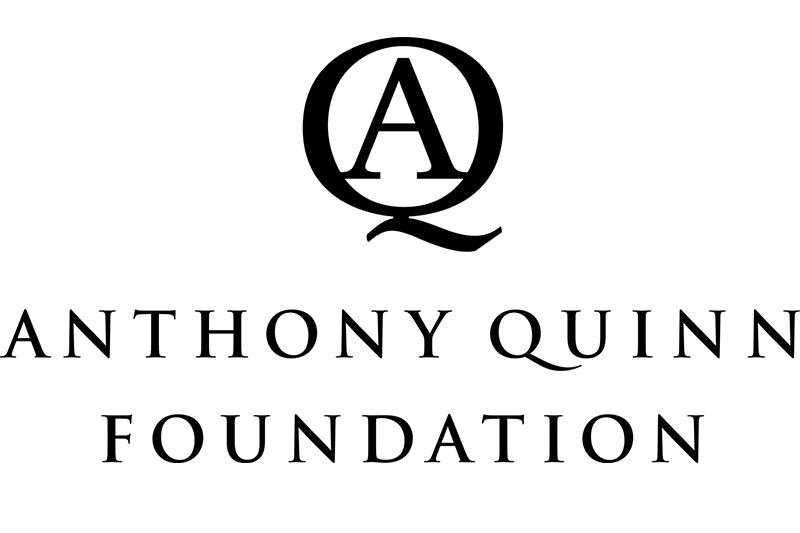When he was only two years old, Anthony’s mother used to craft hand-sewn handkerchiefs by drawing pictures on linen, embroidering and selling them to help feed the family. His father too displayed artistic talent. He played Mexican folk songs on the guitar and sang when the family would gather after dinner every night. Their first family home was a mere shack in the poor Mexican neighborhood of East Los Angeles, but his mother always kept the dirt floors swept clean and his father painted some of the windows with a beautiful landscape to hide the view of the neighborhood trash bins just outside. From these experiences, and many others, Anthony learned that regardless of how poor he was his life could be made richer through the arts.
After his father died, his mother often worked two jobs to support the family. They had to find inventive ways of earning money. Some of Anthony’s jobs included amateur boxing, foreman of a mattress factory and working in a butcher shop. Anthony learned to sketch and to sculpt in plaster. He once created a bust of Abraham Lincoln for which he won a prize of $100. Several years later, one of his drawings was also awarded first prize in a statewide contest. The reward was a life-changing apprenticeship with iconic architect Frank Lloyd Wright, who was a celebrity at the height of his career. Wright’s philosophy, which made a tremendous impression on young Anthony and stayed with him throughout his life, was that a successful architect did not build to the size of man, but to the size of man’s spirit.
In and of themselves, each one of these events might not be so significant. But, in the context of the path that Anthony Quinn forged, they were stepping stones for a life linked by the passion to create. He believed that all children are naturally creative thinkers—but that their creative edge gets dulled when they are consigned to a rigid educational environment. Creative thinking needs to be nourished and encouraged throughout one’s life. Many studies have positively demonstrated that imaginative thinking and creative expression help develop and strengthen traditional skills; the very skills needed to work through the complex choices we make every day.
Anthony believed that his early exposure to creative expression—his parents’ artistic ingenuity and aesthetic integrity—gave him the foundation upon which he built his career. His love for reading fed curiosity about the world, which he was later able to satisfy during his travels for work. Traveling opened up new worlds for him—culturally and artistically—and he never visited a city or country without both leaving a part of himself there and bringing a part of that place home with him. Through his acting and his artwork, he was able to communicate his love for all of humanity—irrespective of linguistic, cultural, or religious differences. He believed the arts were a universal language.



